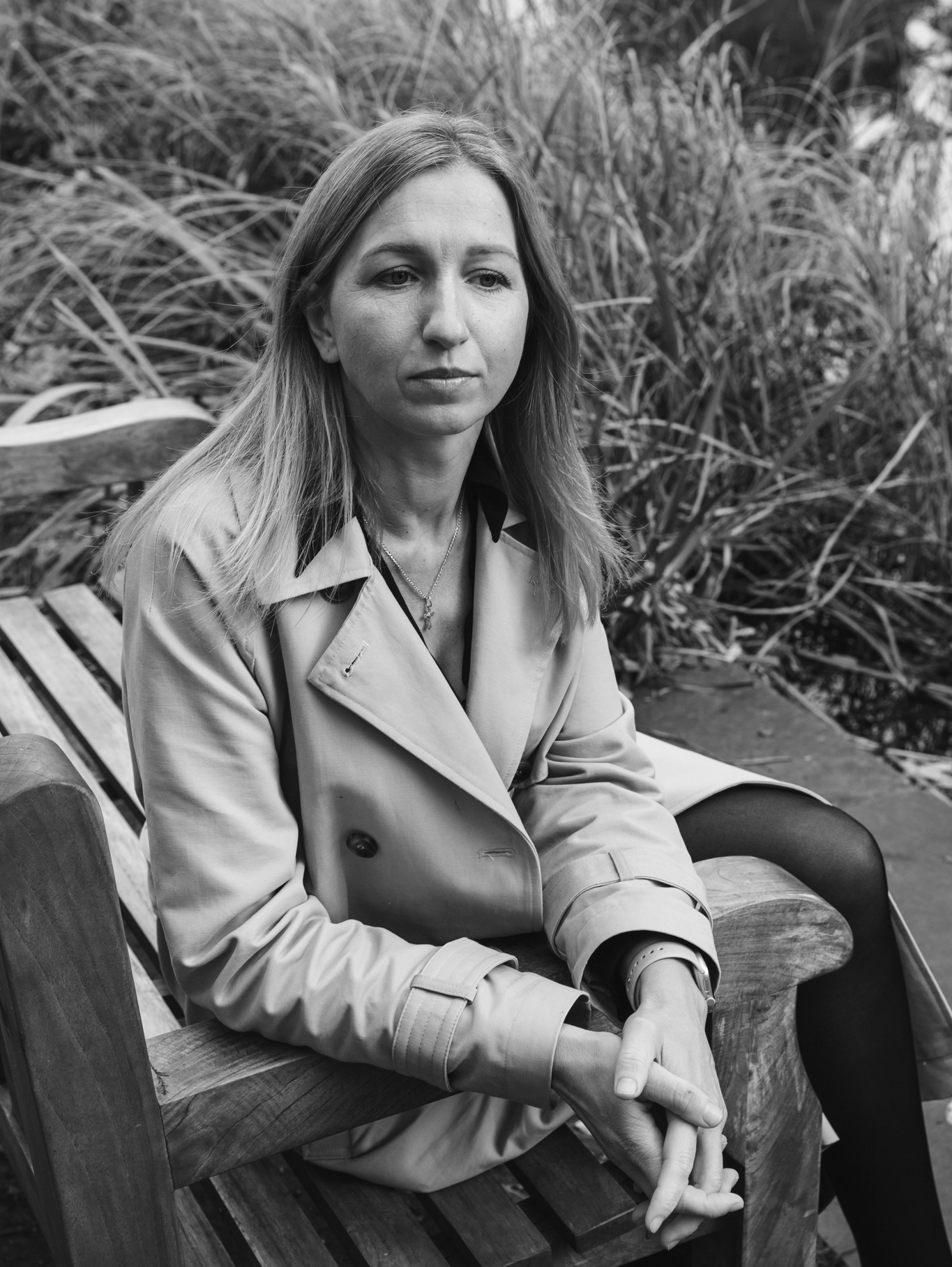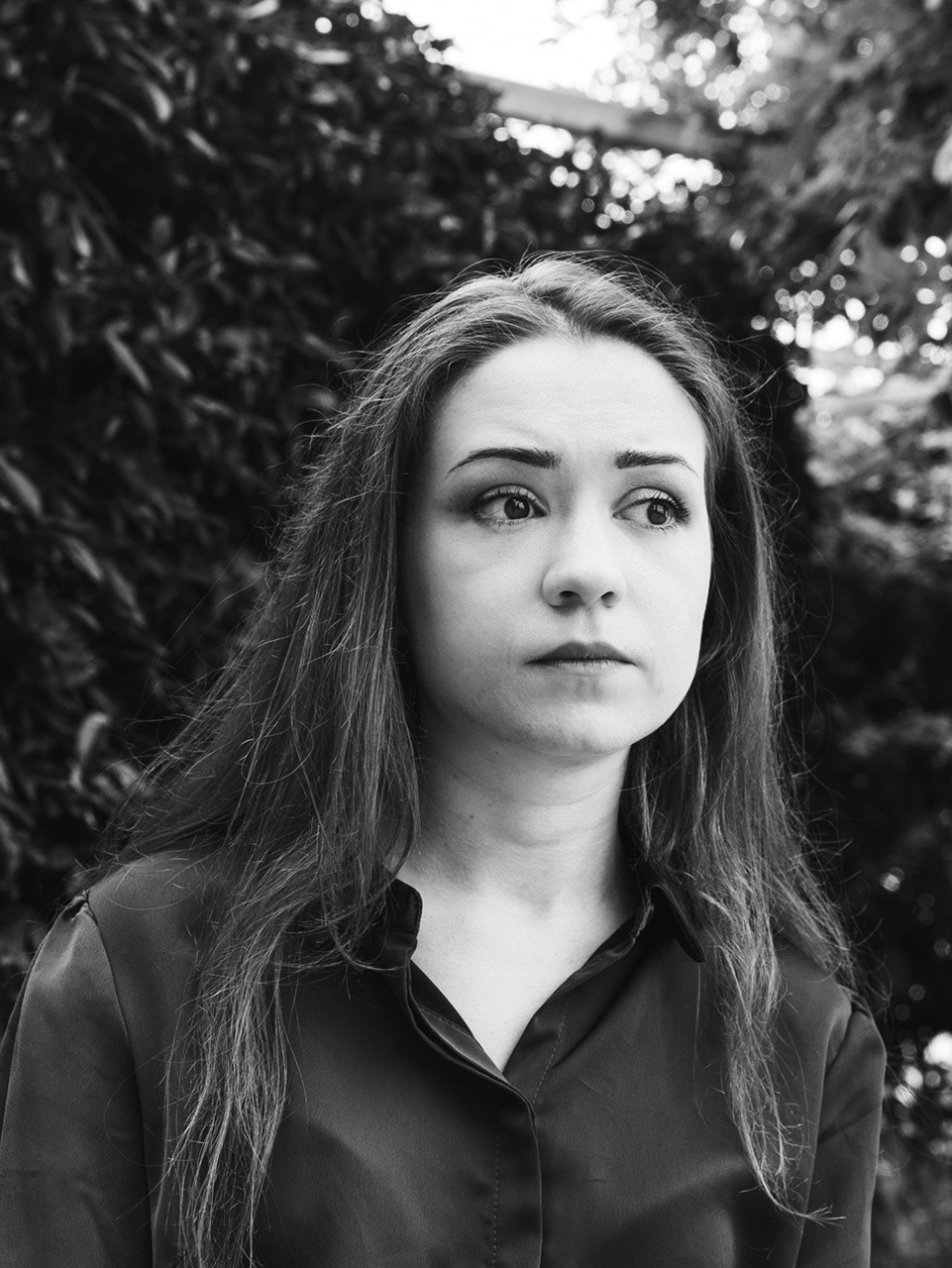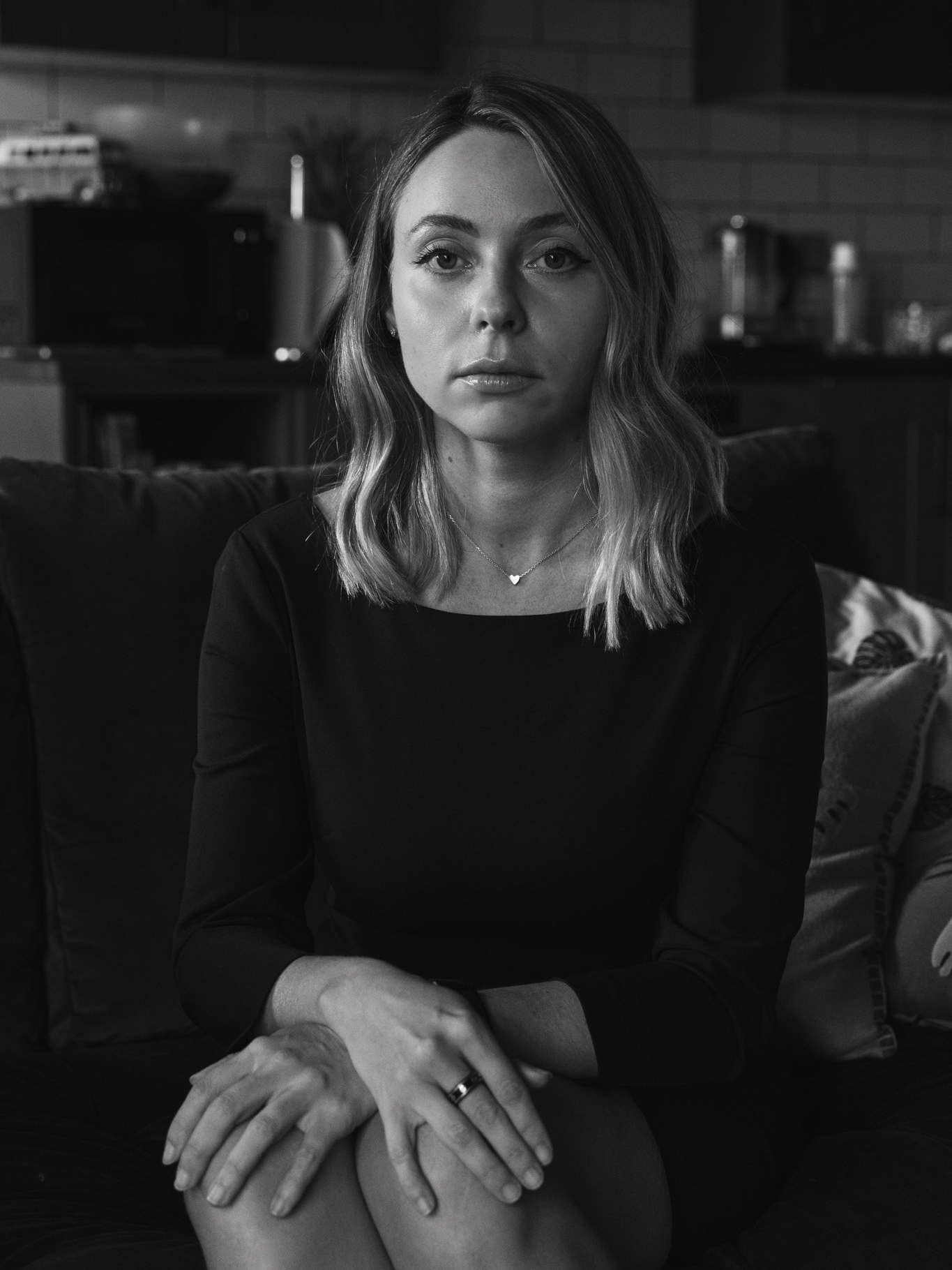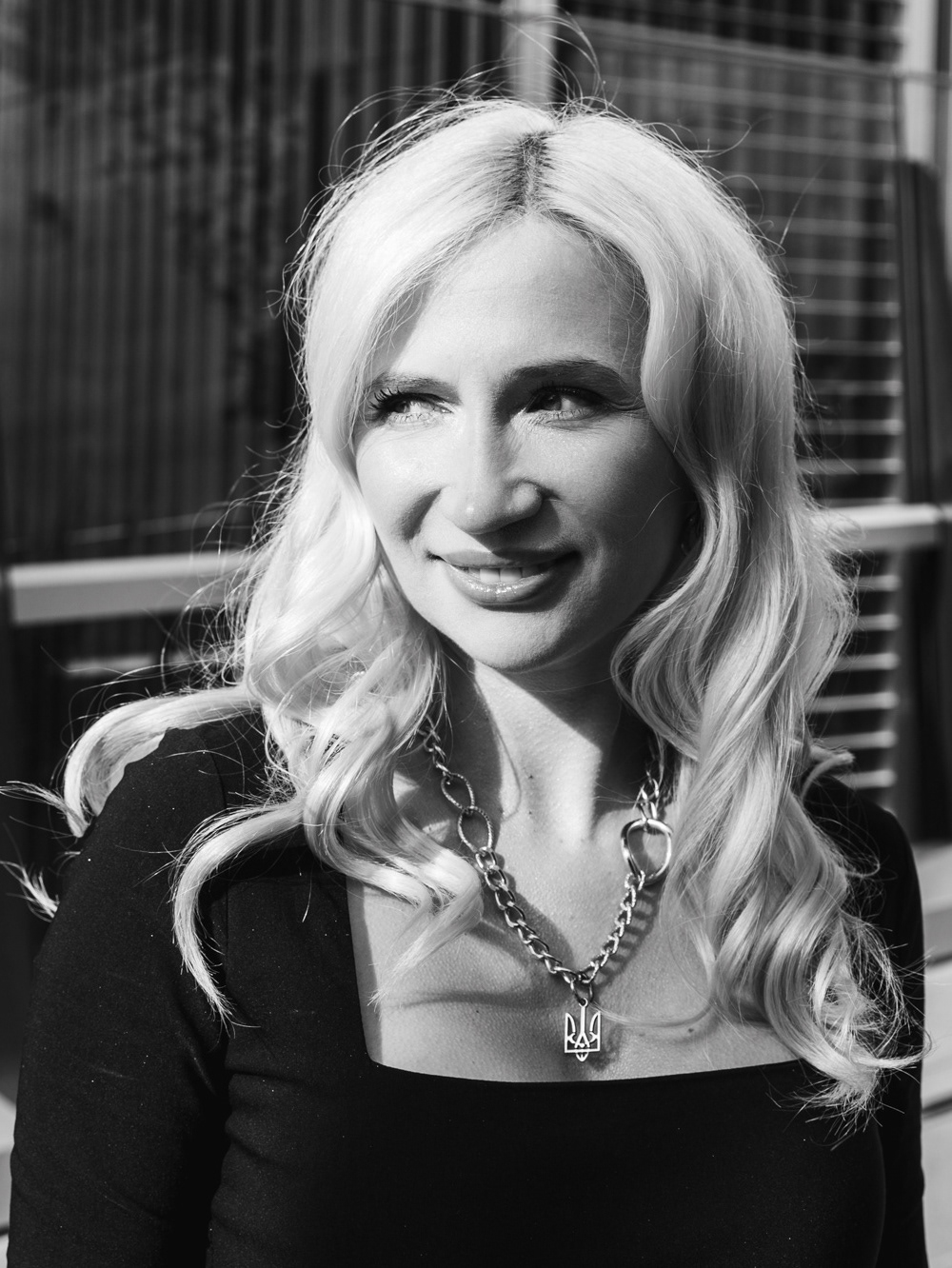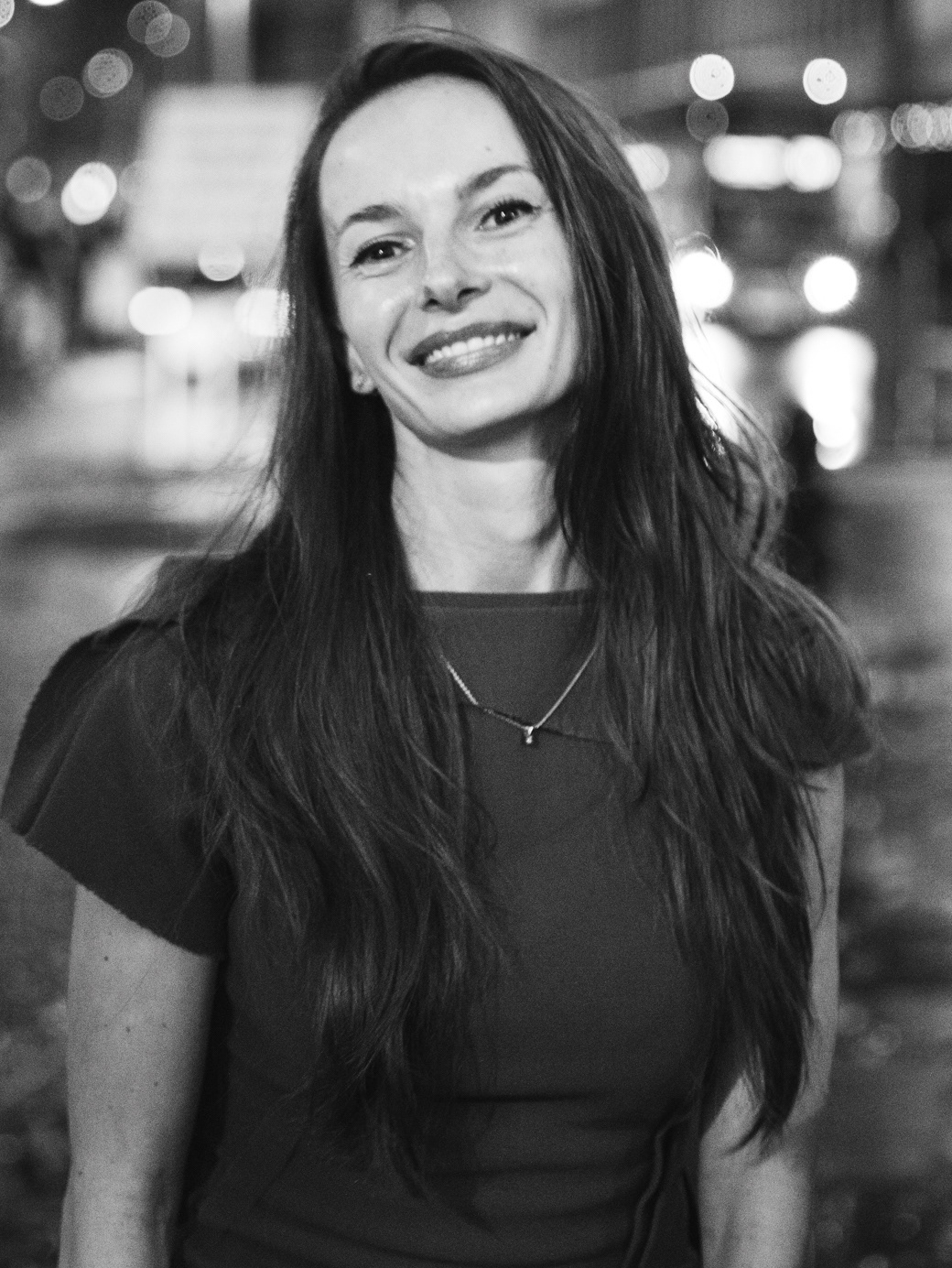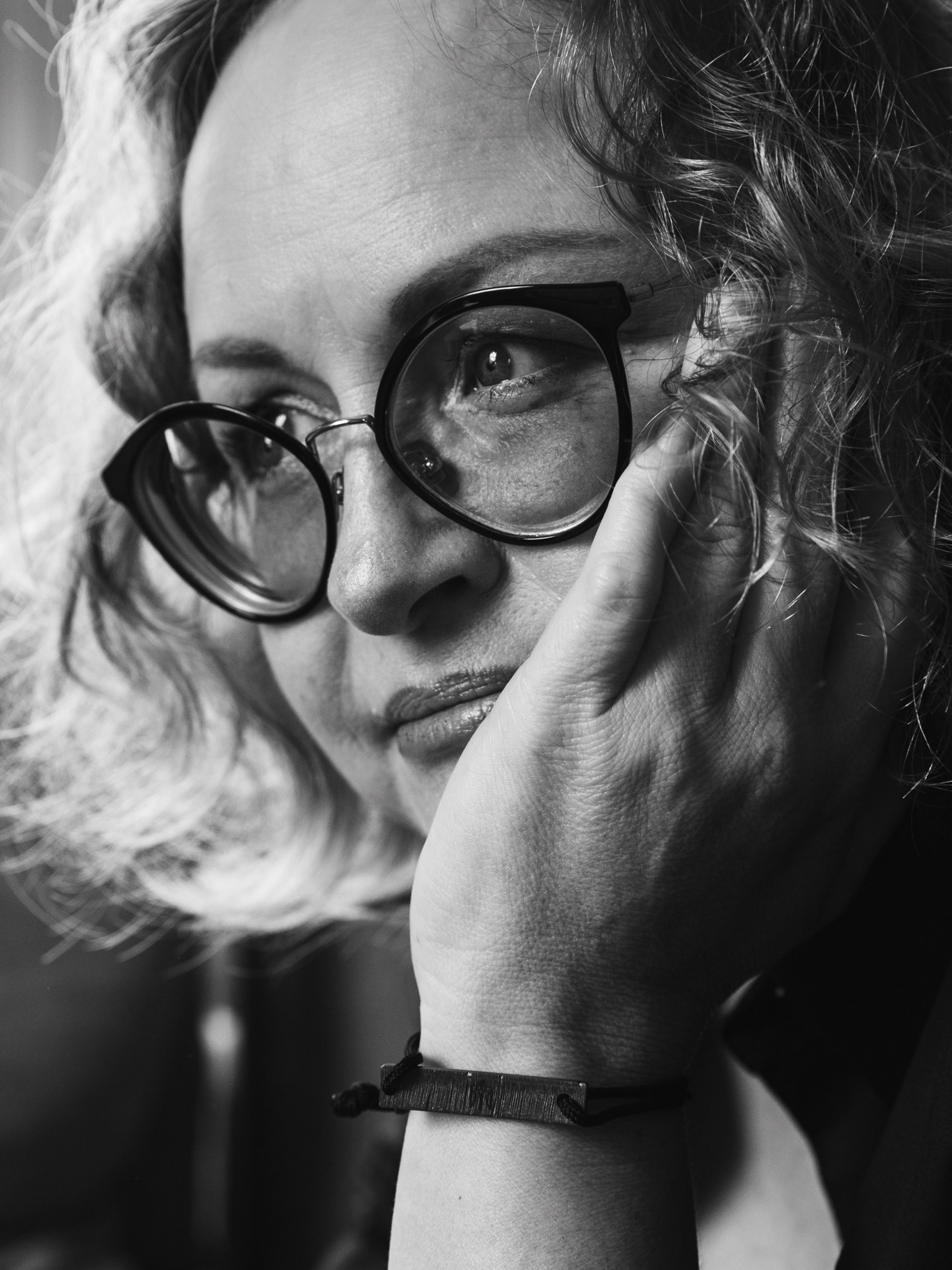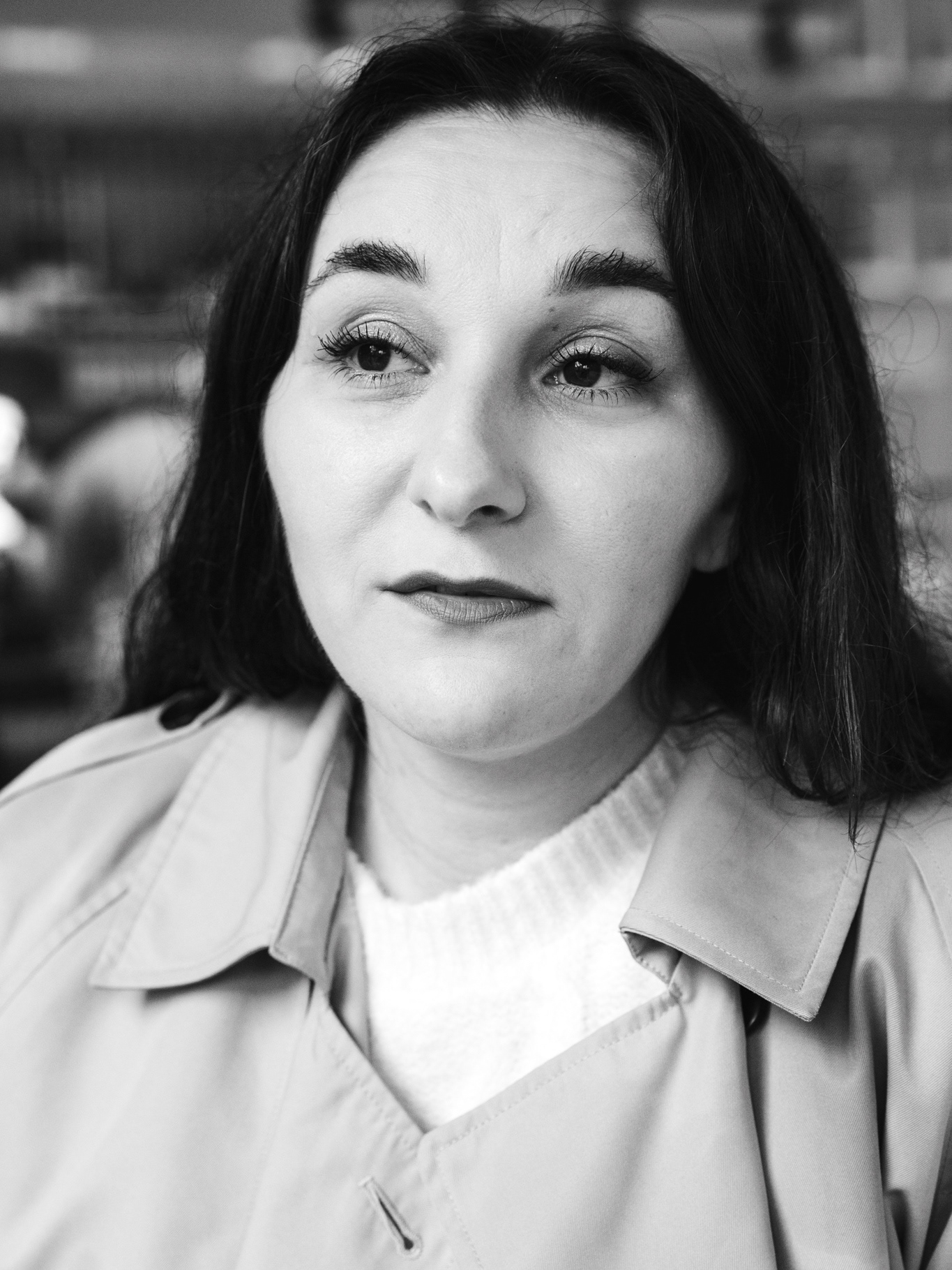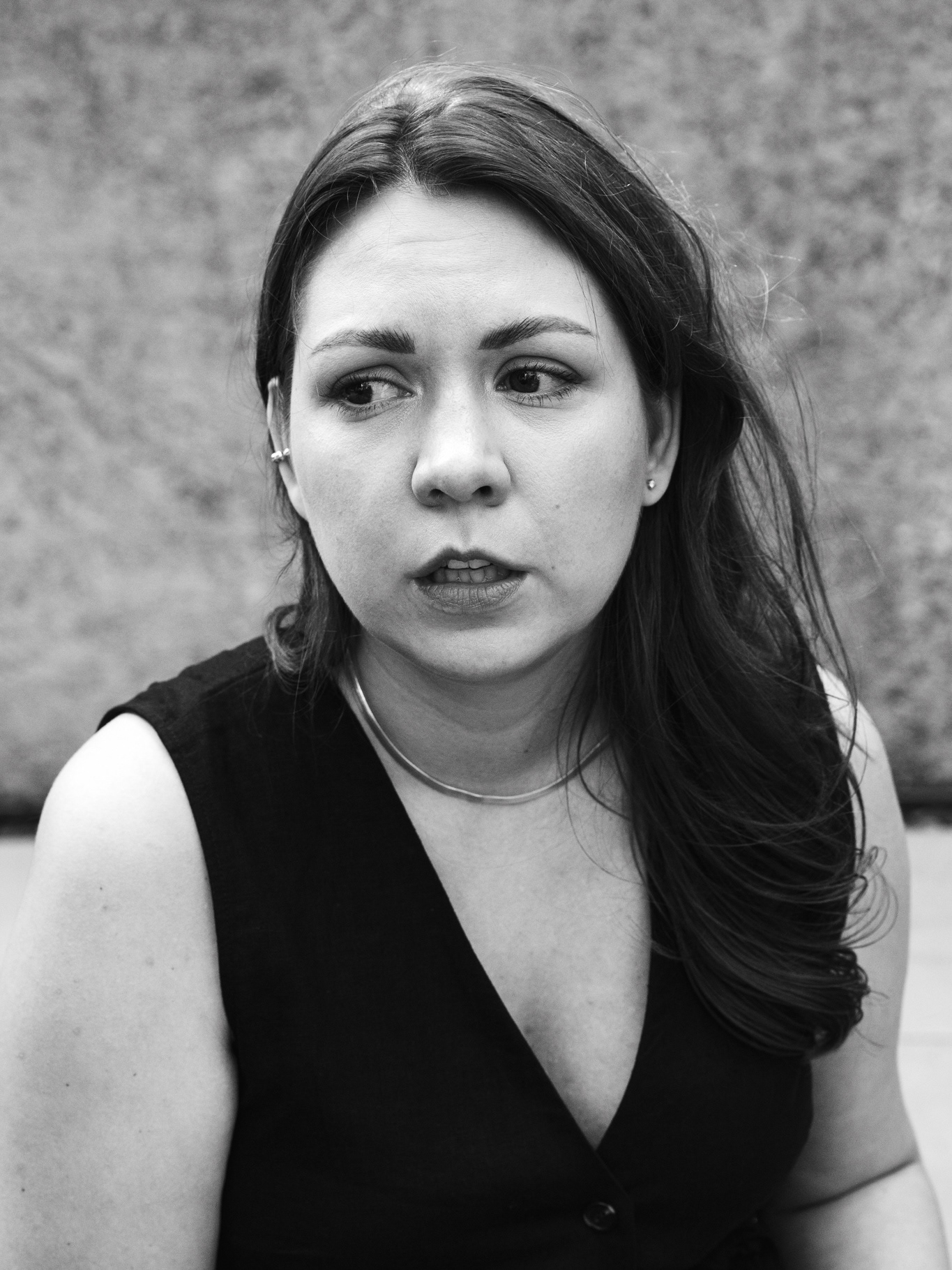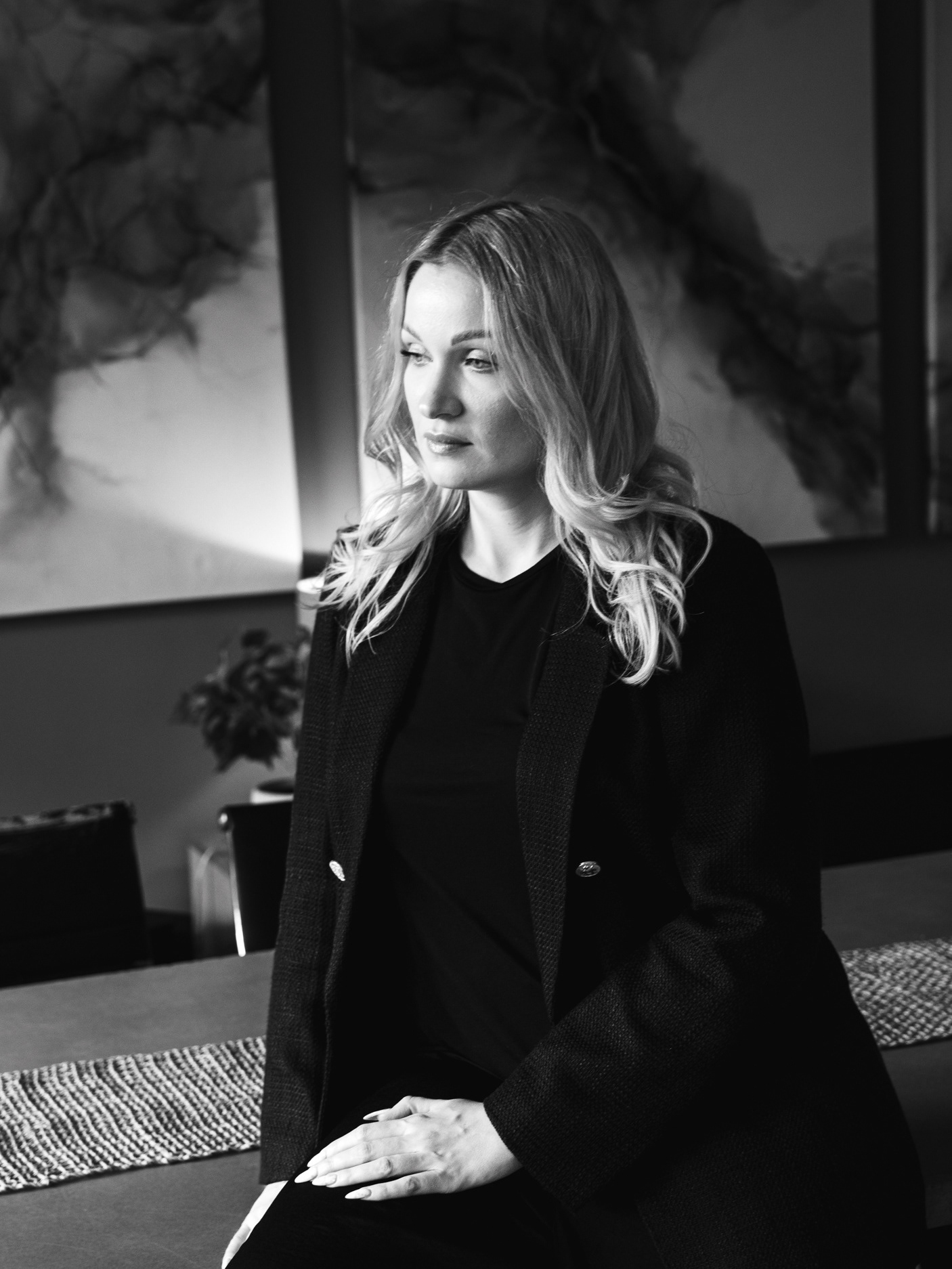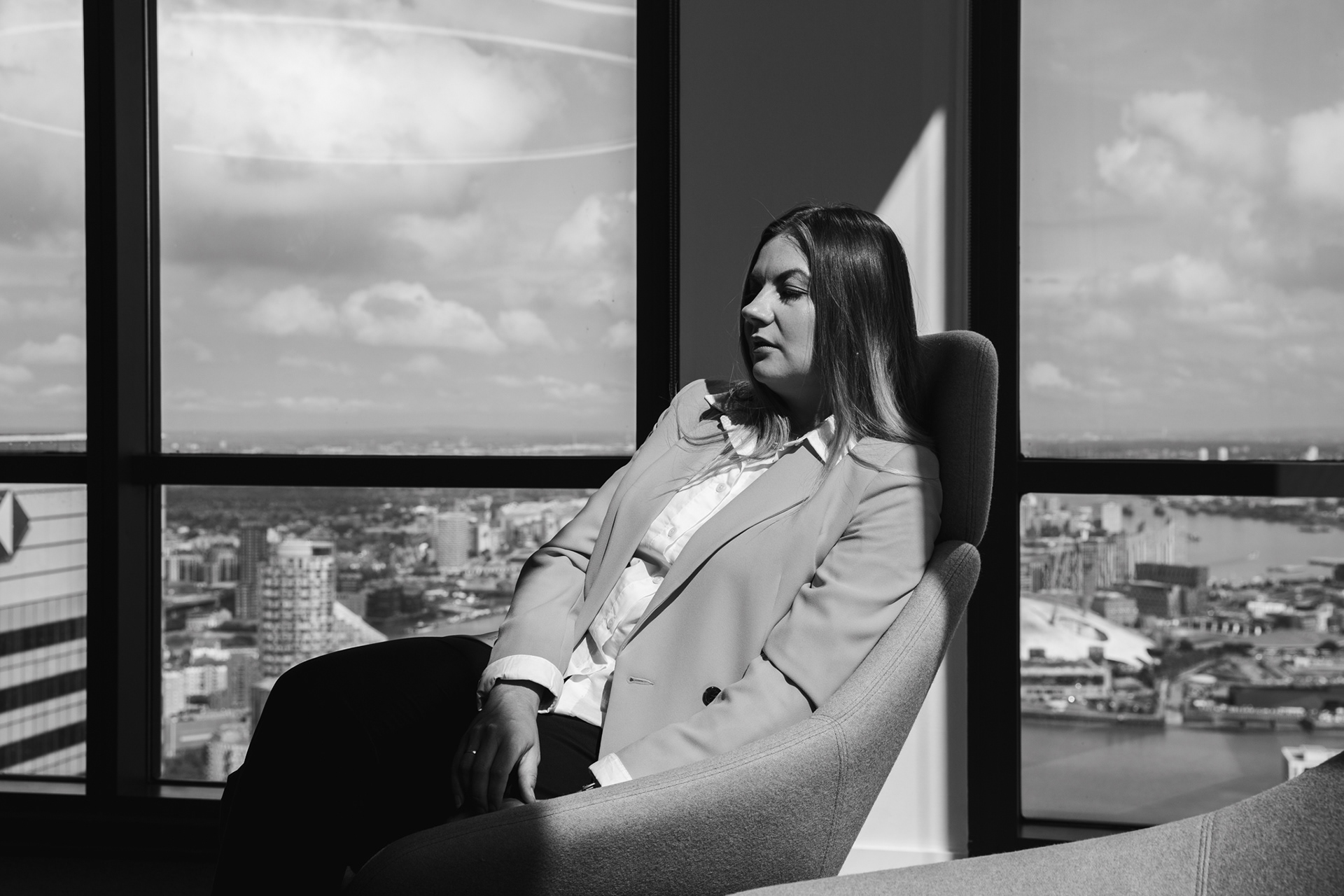
The Strength Born from Chaos
When the engines of military aircraft roared over Lutsk at five in the morning on February 24, 2022, Nataliia Hrytsuk immediately understood—the worst had happened. While her three young children—a five-year-old son, an almost three-year-old daughter, and a five-month-old baby—were still asleep in their beds, she was already searching for her husband. He was awake, staring at his phone screen, where the news feed screamed about a full-scale invasion.
"Literally, while I was trying to find where he was hiding, we heard the strikes on our airfield," Nataliia recalls. The military airfield near Lutsk, where aviation from Crimea had been relocated, became one of the first targets. The shockwaves reached their home in the city center.
"It was very strong, very powerful... Our doors were shaking. The windows. The large windows also started to tremble. The children were sleeping under that window... I didn't know what to do next. I was just terrified. Our mind paints the scariest scenarios of what could happen to the children. Whether a missile would hit, or the windows would shatter from shrapnel."
The feeling of all-encompassing fear and confusion forced them to act instantly. Grabbing a pre-packed bag with documents and clothes, the family drove to the nearest church, hoping to find safety in its underground premises. Like many others, they believed it would only be for a few days.
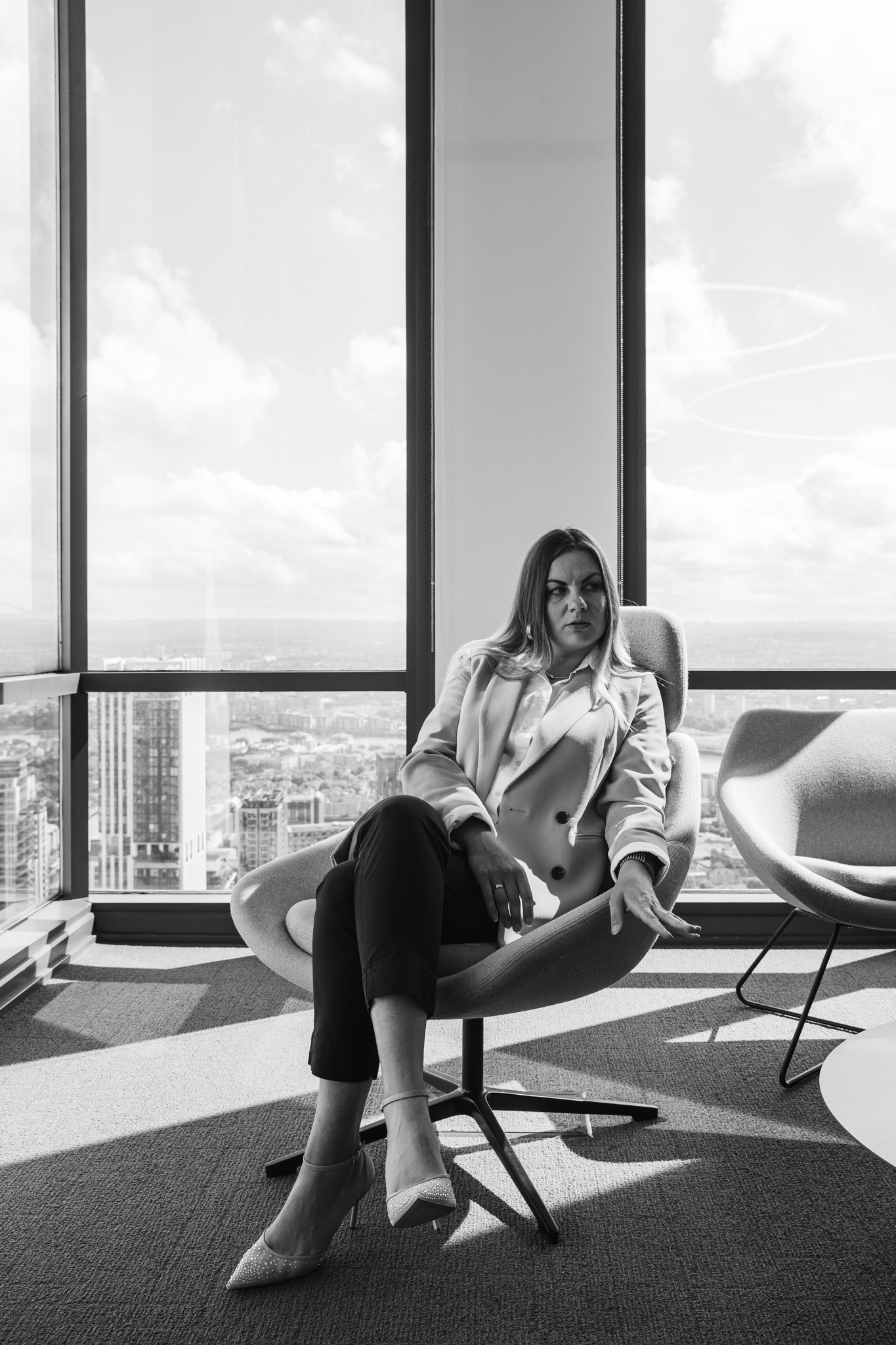


The Choice Between Duty and Family
While Nataliia was trying to calm the children and comprehend the new reality, her husband was eager to act. Chaos reigned in the first few days, and men were self-organizing to fight back.
"My husband was planning to join the Territorial Defense Forces, or... he went to the neighbors: 'let's do something, let's start taking shifts.' They drove to the forest, thinking about which trees to cut down if [the enemy] decided to advance on Lutsk... they were thinking through these, you know, self-organizational moments."
For Nataliia, this added another layer of anxiety. She understood his desire to protect, but her maternal instinct screamed otherwise. "I tried to talk him out of it, I wouldn't let him go, saying: 'God, what if someone finds out you're taking an active part, I'm here alone with the children, what am I supposed to do with them?'" Fortunately, when her husband went to sign up for the Territorial Defense, they looked at him and said, "You have three children, go home and take care of them." That was the decisive factor.
A week later, having exhausted their hopes for a swift end to the war, the family set off for Poland. Nataliia remembers the state of constant tension:
"I don't think I could sleep or eat anything either, just sitting there, scrolling through the news. And I would listen for the trains; the tracks were far away. And every train sounded to me like tanks were coming. With three children, I didn't know where to run, where to escape."
Even simple actions became a trial. "I'd tell them: 'let's get your shoes on, there's an air raid siren,' and they would start: 'I want the blue shoes, not the orange ones'... I realized I couldn't handle this for long." It was then that her husband finally understood he couldn't leave them. "He realized himself that he couldn't leave us alone because I wouldn't have been able to even go to the store by myself with the children."
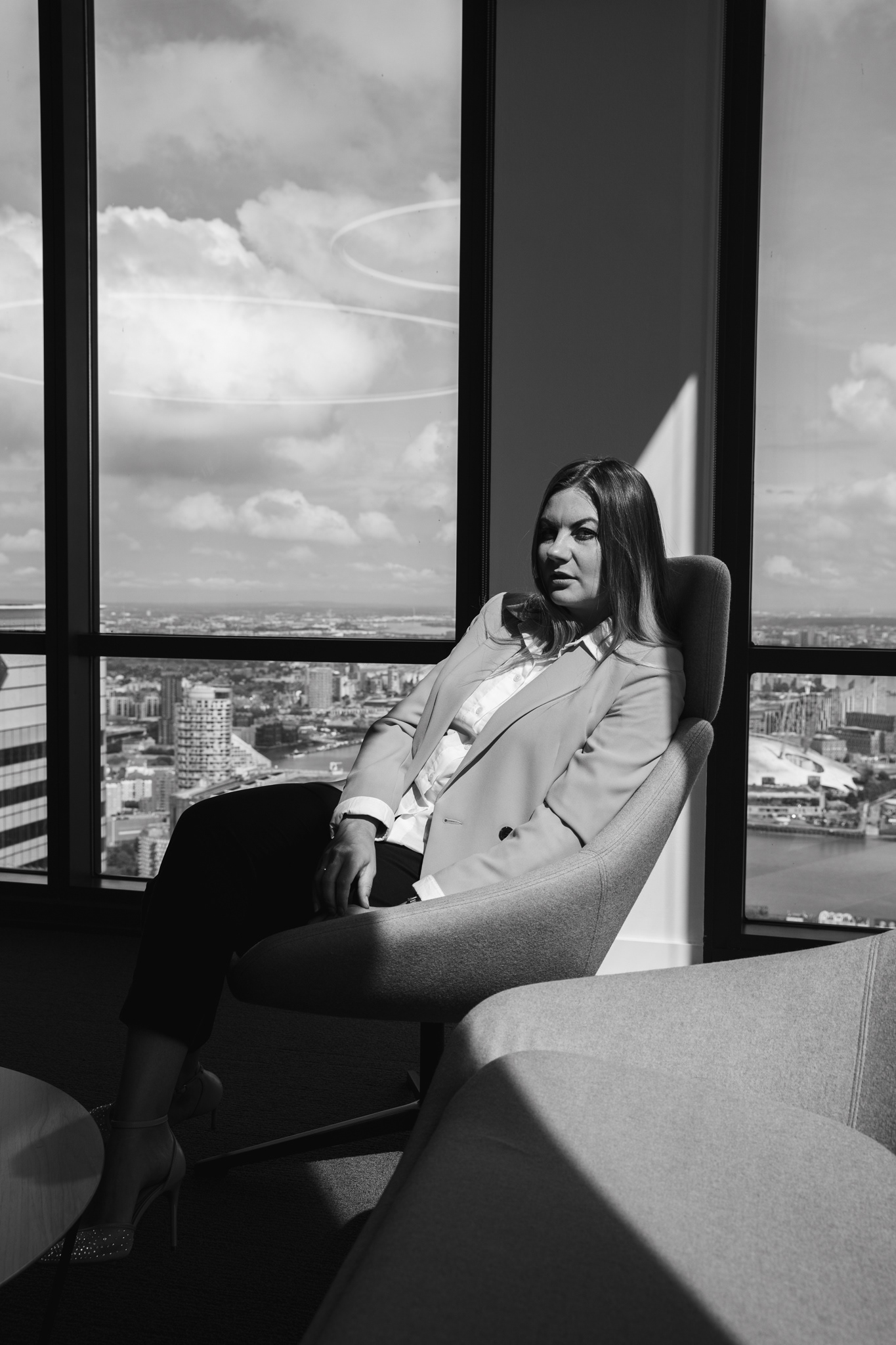
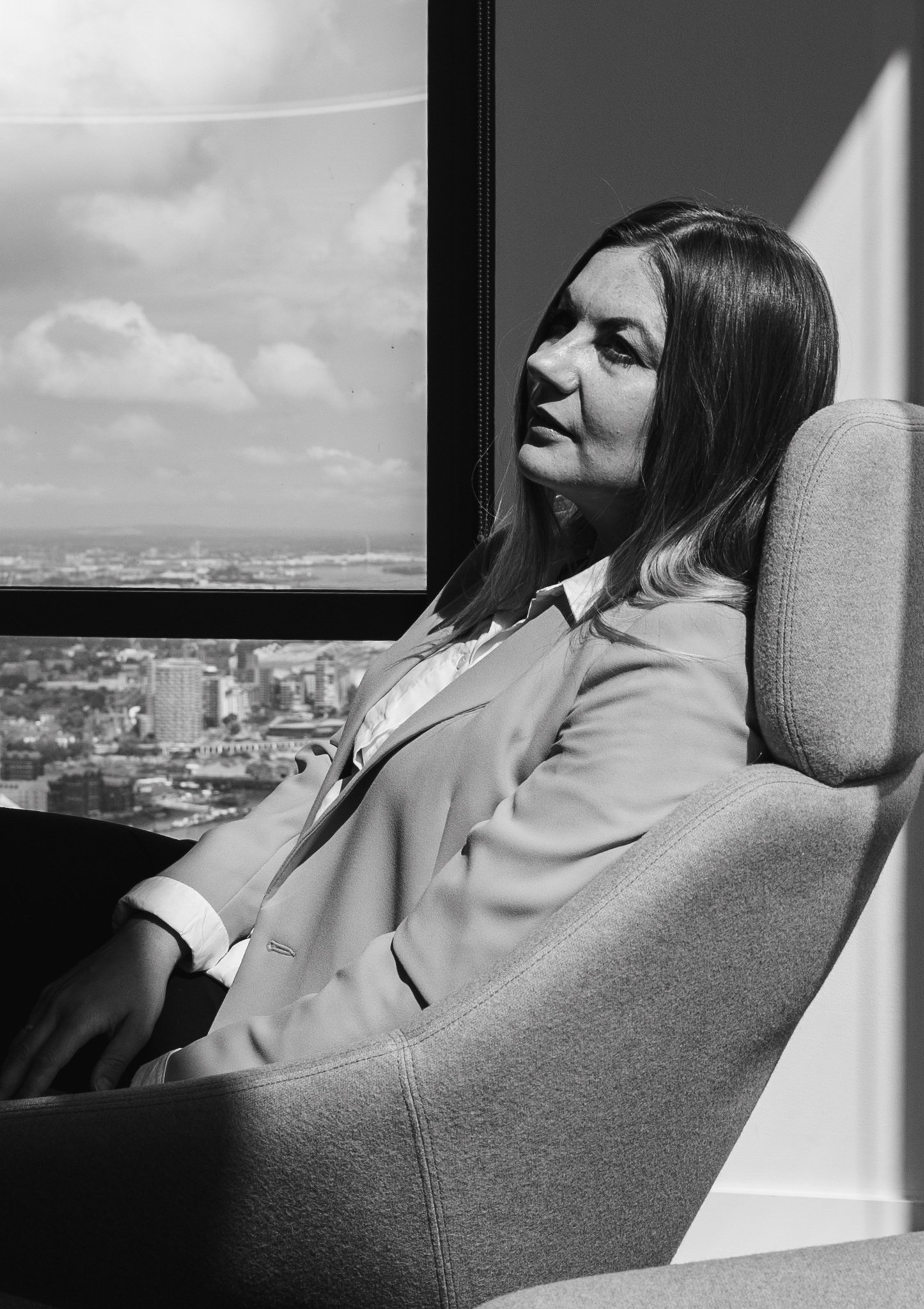
The Netherlands: Despair and Determination
Poland was just a temporary stop. Realizing they had to move on, Nataliia started looking for work. The very first ad she found online led to the Netherlands. The decision was made in an instant. "I said, 'we're going.' We'll go, and we'll figure it out from there," she recalls. It was a leap into the complete unknown.
They arrived on March 8th. The reality was harsh. The housing they were offered was like a shed in a farm camp for laborers.
"There were these aggressive chickens walking around... It was completely unsuitable for children. We spent one night there; the conditions were terrible, it was cold, very cramped. And they even offered to charge us for this little hut with no windows or doors. For that money, we could have rented a decent hotel."
After one night, Nataliia knew they couldn't stay. It was a moment when despair transformed into cold-blooded determination. The next morning, she took their passports and went to the local municipality (gemeente). "We came, said we were from Ukraine. They took us in, and an hour later, they settled us in a wonderful apartment in the center of The Hague."
It was the first sigh of relief in many weeks. "It was, in fact, the first night we slept properly. We just fell asleep... We probably hadn't slept since the beginning of the war."

A New Start: The Power of Knowledge and Initiative
Safety was found, but new challenges lay ahead. Nataliia continued to work remotely as an associate professor at a Ukrainian university but quickly realized: "A Ukrainian salary covers absolutely nothing in the Netherlands. It's enough for one trip to the grocery store." She needed to find something there.
Holding a PhD, she began a systematic search for academic programs. "I was looking at countries where you didn't need to know German or French. My English wasn't very strong either, but at least I had some level," she admits honestly. Nataliia prepared and sent out ten complex, detailed applications, each requiring several days of work.
The first interview was a failure. "They asked me about my scientific activities, about my research, and my English was at a conversational level. I wanted to explain, but it just didn't work out." But this didn't break her. She analyzed the questions, prepared her answers, and at the second interview, which consisted of three stages, she succeeded—she received a research fellowship at a university in the United Kingdom.
After moving to the UK, Nataliia didn't just adapt; she began to create. She approached her supervisor with an idea—to organize a business course for Ukrainian women who, like her, were starting their lives from scratch.
"I brought my knowledge, the knowledge I had from Ukraine... my British colleague helped adapt it: who to invite, how to involve practitioners, mentors, so it wouldn't be a purely theoretical course."
The initiative, born from her own experience, exceeded all expectations. The course became incredibly popular ("we already have 300 applications for 40 spots") and won three prestigious awards. But most importantly, it gave women support and inspiration.
"Many of them noted that this course was probably the best thing that had happened to them in the last year. We come to a nice place, we are well-received here, we feel the support that tells us 'you will succeed.' They come for networking, for inspiration."
Nataliia Hrytsuk's story is not just about escaping a war. It is about the transformation of fear into action, uncertainty into strategy, and personal pain into a force capable of supporting and inspiring hundreds of others. It is a vivid example of how one woman, armed with intellect, a mother's love, and an unbreakable will, can confront chaos and build a new future—for herself, her family, and her community.
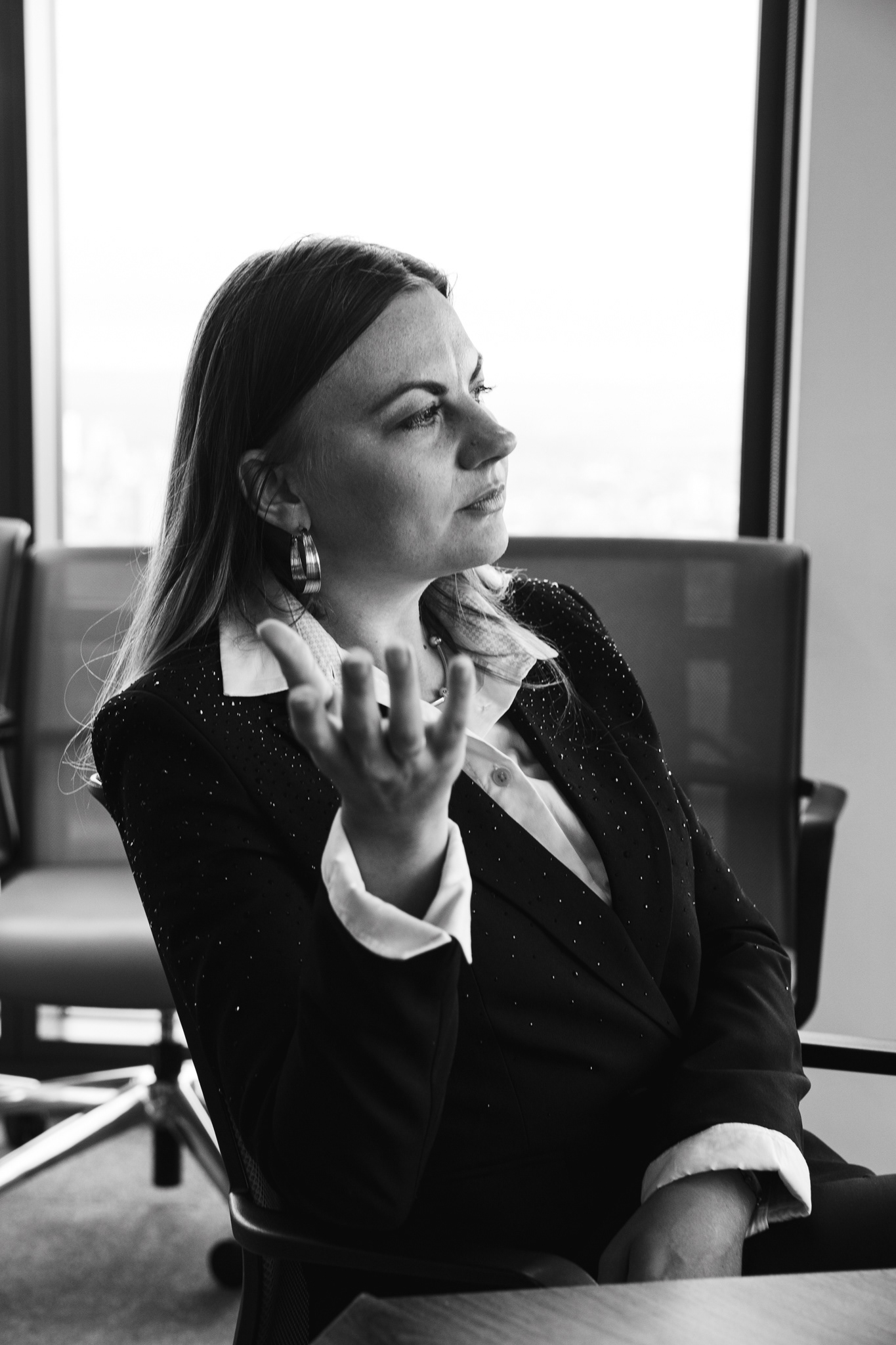
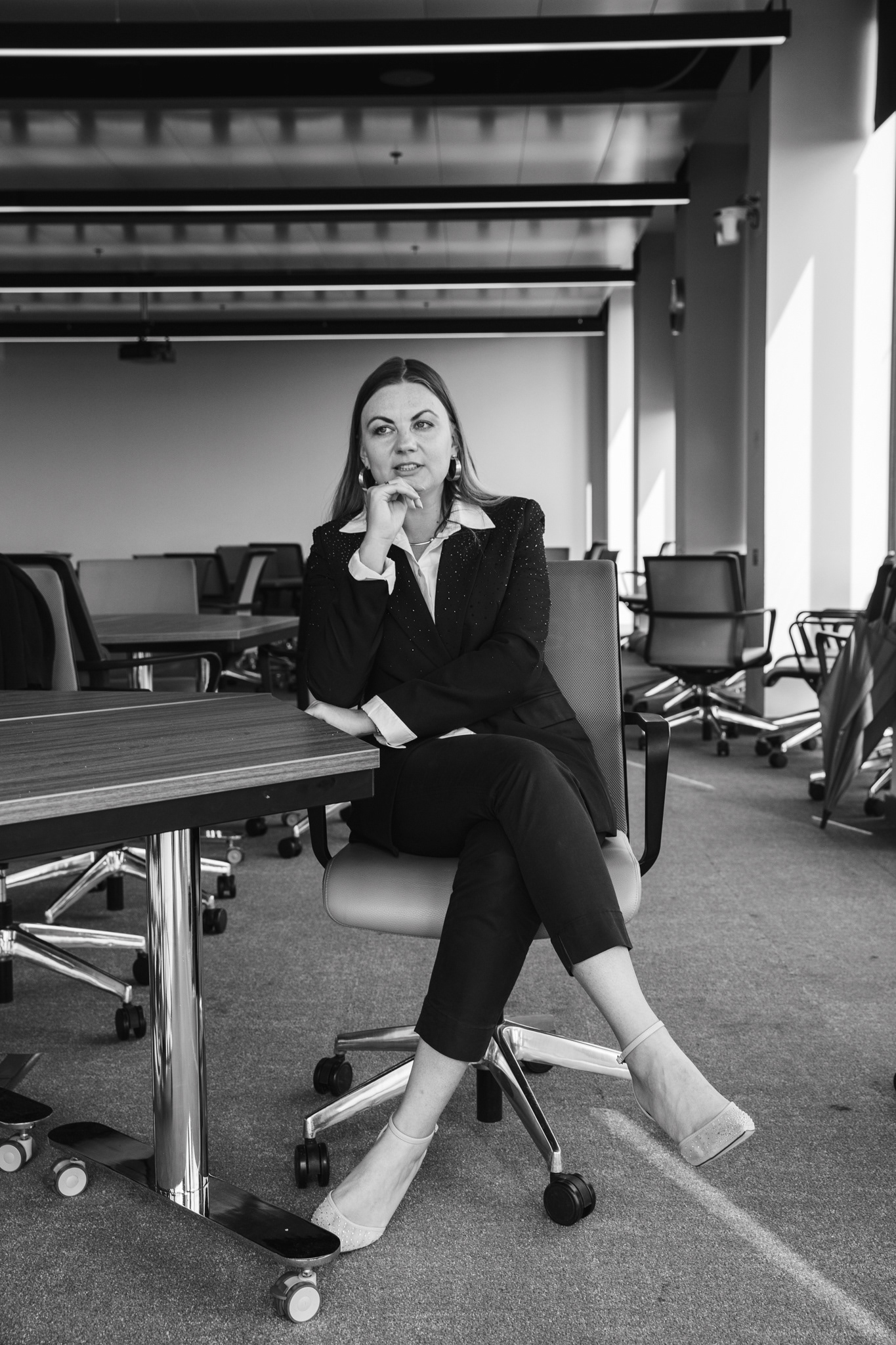
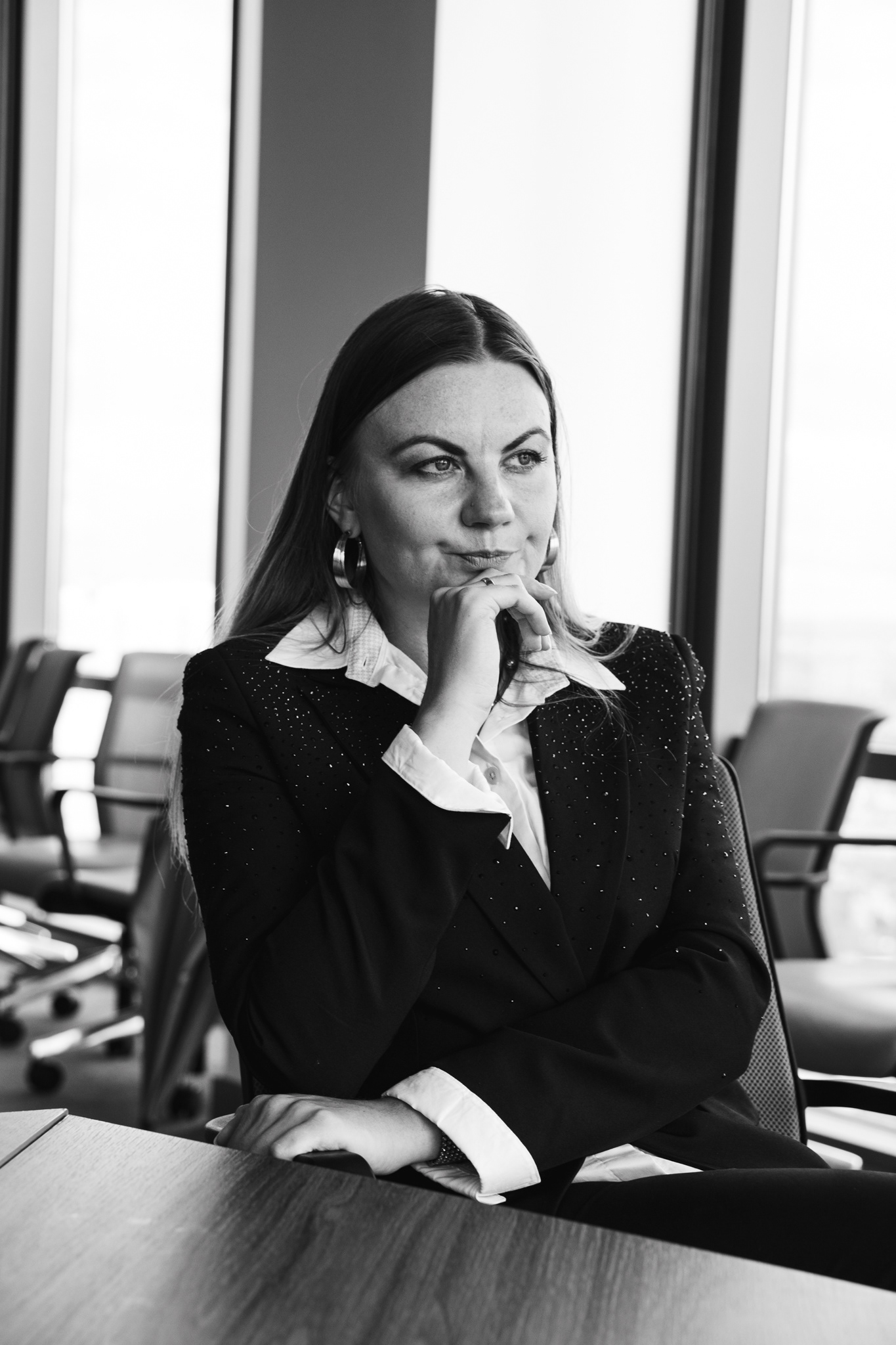
New Home, New Rules: Adapting to British Culture
Arriving in the United Kingdom and starting work at one of the world's leading universities was not only a professional challenge for Nataliia but also a deep dive into a different culture of communication. The biggest discovery was the British reserve and indirectness, which contrasted so sharply with the familiar Ukrainian directness.
"This is the main problem in our communication, that we speak quite directly. They perceive it as a bit rude, although we don't actually mean to be rude," she shares. "And only with experience do you come to realize that you shouldn't speak so directly, but a bit between the lines. To avoid offending someone you have to work with."
She quickly understood that in the multicultural environment of a British university, the top priority is behaviour—conduct and the ability to work in a team. This is valued no less, and sometimes even more, than purely professional skills.
"Here, everyone tries to create a generally supportive environment where it's very inappropriate for you to speak out or criticize something. Just a few days ago, I had an interview after my probationary period, and there was a question: 'how does the candidate communicate with their colleagues, do they find common ground?'. Because it's a very multicultural environment here, everyone is from different countries, and no one wants you to come in and start proving you're the smartest."
This philosophy was strikingly different from the sometimes-sharp corners of Ukrainian academic circles. "I know that at our university, there was this practice: he walked down the hall, didn't greet me, that's it—he's no longer my colleague. We have this thing where people are divided into castes, into cliques. There's nothing like that here." Such adaptation required observation and flexibility, the ability to be "more modest" and to respond "very delicately."
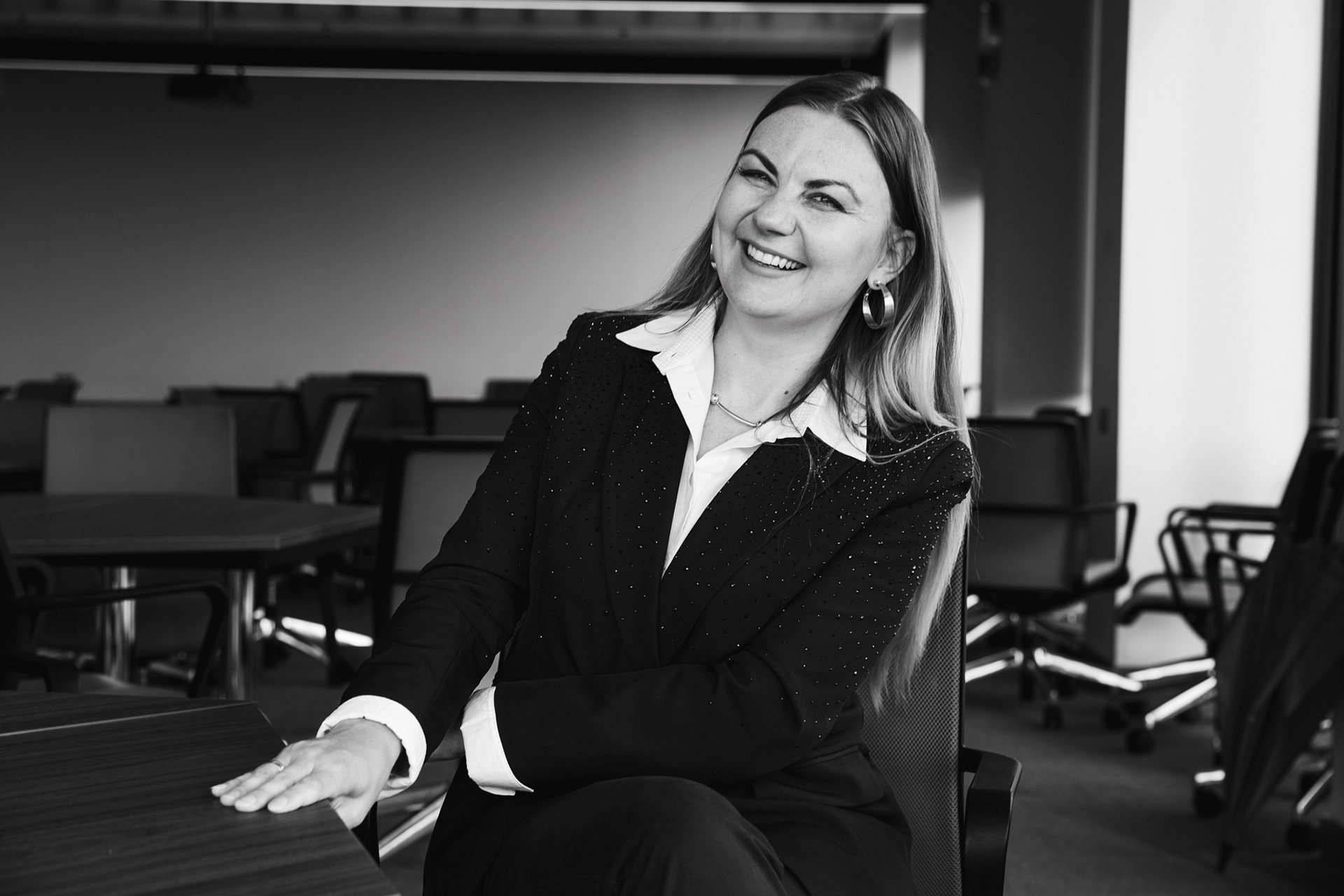
"Just a College": Overcoming Doubts and Reassessing Strengths
The initial stage of her work was accompanied by huge self-doubt. When Nataliia received the offer, she didn't even fully realize the scale of the institution she was joining.
"When I was applying, I didn't see it. I was just applying everywhere I could. And when the decision came that I was accepted into 'University College London,' I thought: 'Well, damn, some college. Okay, if they're taking me into a college, so be it. I don't have many options'," she laughs.
This uncertainty dictated her behavior. She came with the attitude of a student, ready to learn from scratch. "I behaved accordingly: 'teach me, show me.' I didn't really talk about what I knew. I thought they knew much more, much better."
However, after working for almost two years, she came to a striking conclusion that became the foundation of her confidence.
"I understand now: it's nothing special. In principle, we are the same as them, it's fine. And we have the same skills. And we are not worse, I would even say. We really underestimate Ukrainian education here. Yes, they have better resources, they have connections, the best students from different countries come here... But the teaching itself, what they teach, how they teach it—I wouldn't say we are worse."
This realization of her own competence and the value of her Ukrainian experience became her anchor.
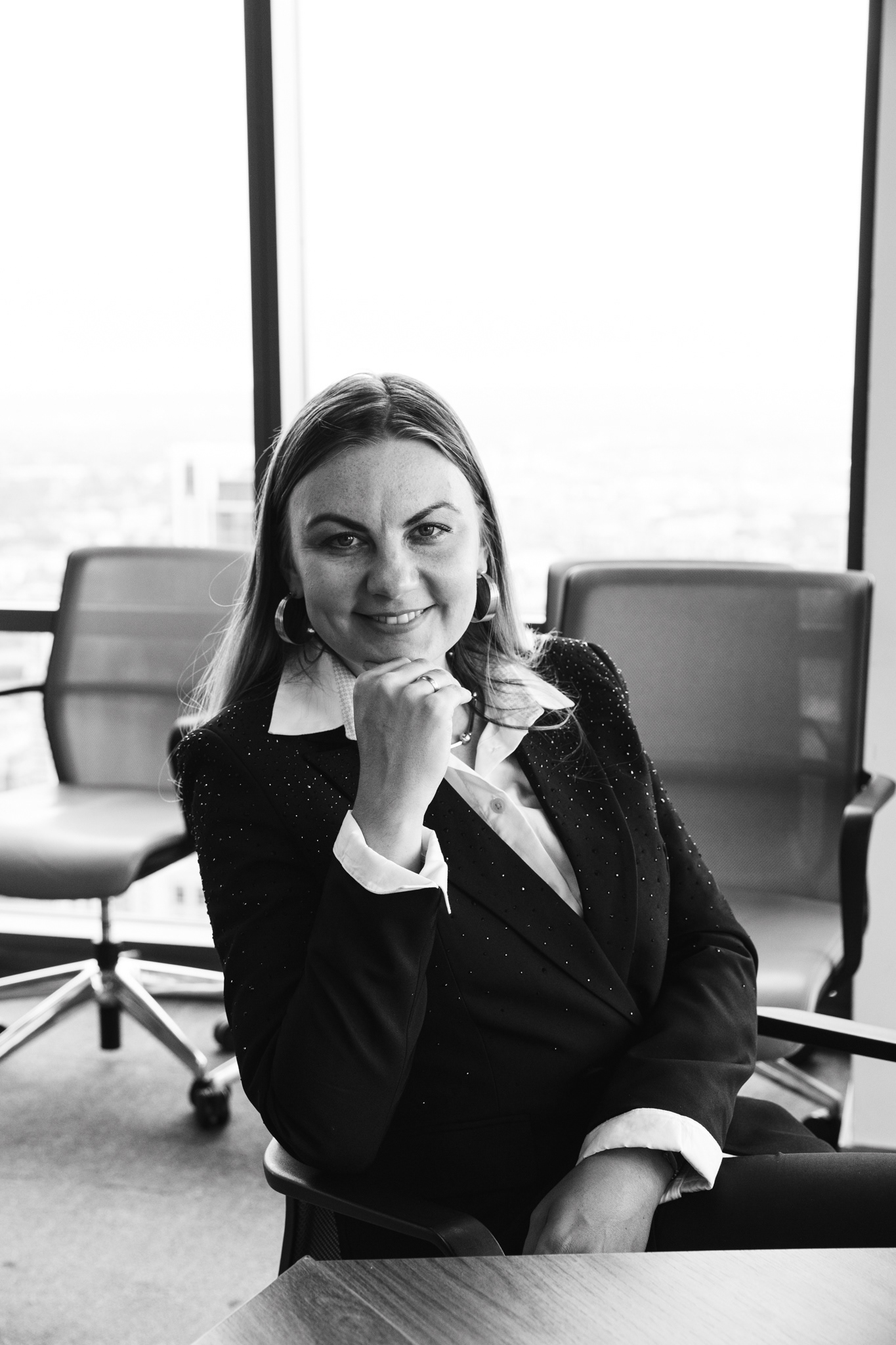

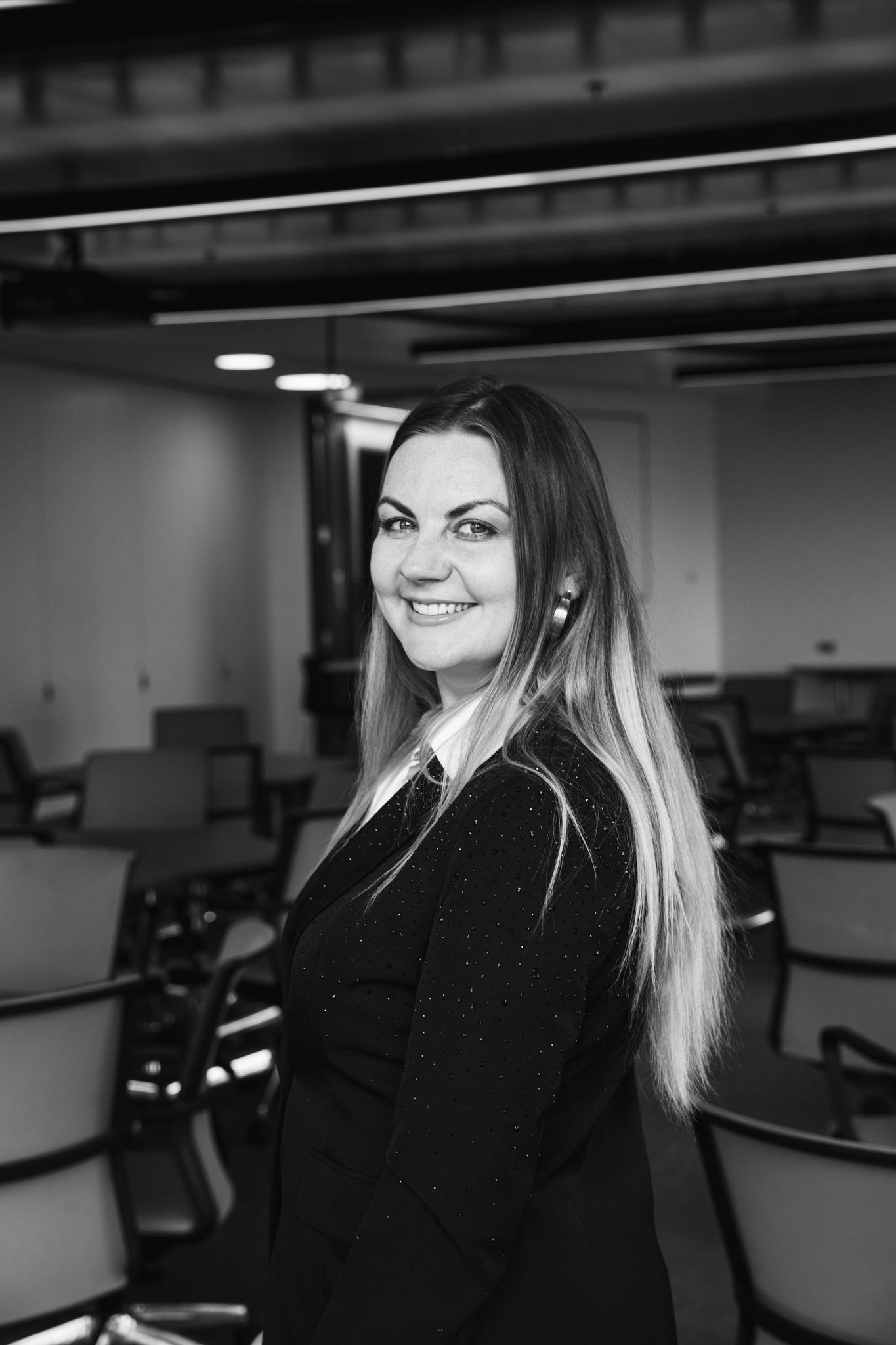
An Epiphany in Oxford: "How Am I Any Worse?"
The turning point that finally dispelled the remnants of "imposter syndrome" happened during a trip to Oxford. The organization that funded her scholarship held a seminar for Ukrainian researchers to help with future employment.
"When I came to Oxford, to the university that everyone has heard of and dreams of getting into... I listened to these lectures and realized: well, it's nothing special. Just ordinary people, ordinary lecture halls, talking about ordinary things," Nataliia recalls.
She was particularly struck by the story of one professor who said that to receive two job offers, he had to send out 200 (!) applications.
"He said: 'This is standard practice, it's like this everywhere.' And I thought: 'And I sent 10 and got an offer.' I then spoke with one professor, then a second, then a third... I saw them and thought: 'And how am I any worse?' This was probably a year after I arrived in England. And I thought that, in principle, anything is possible."
That day in Oxford gave her not only knowledge about the British education system but also a deep sense of equality and inner strength.
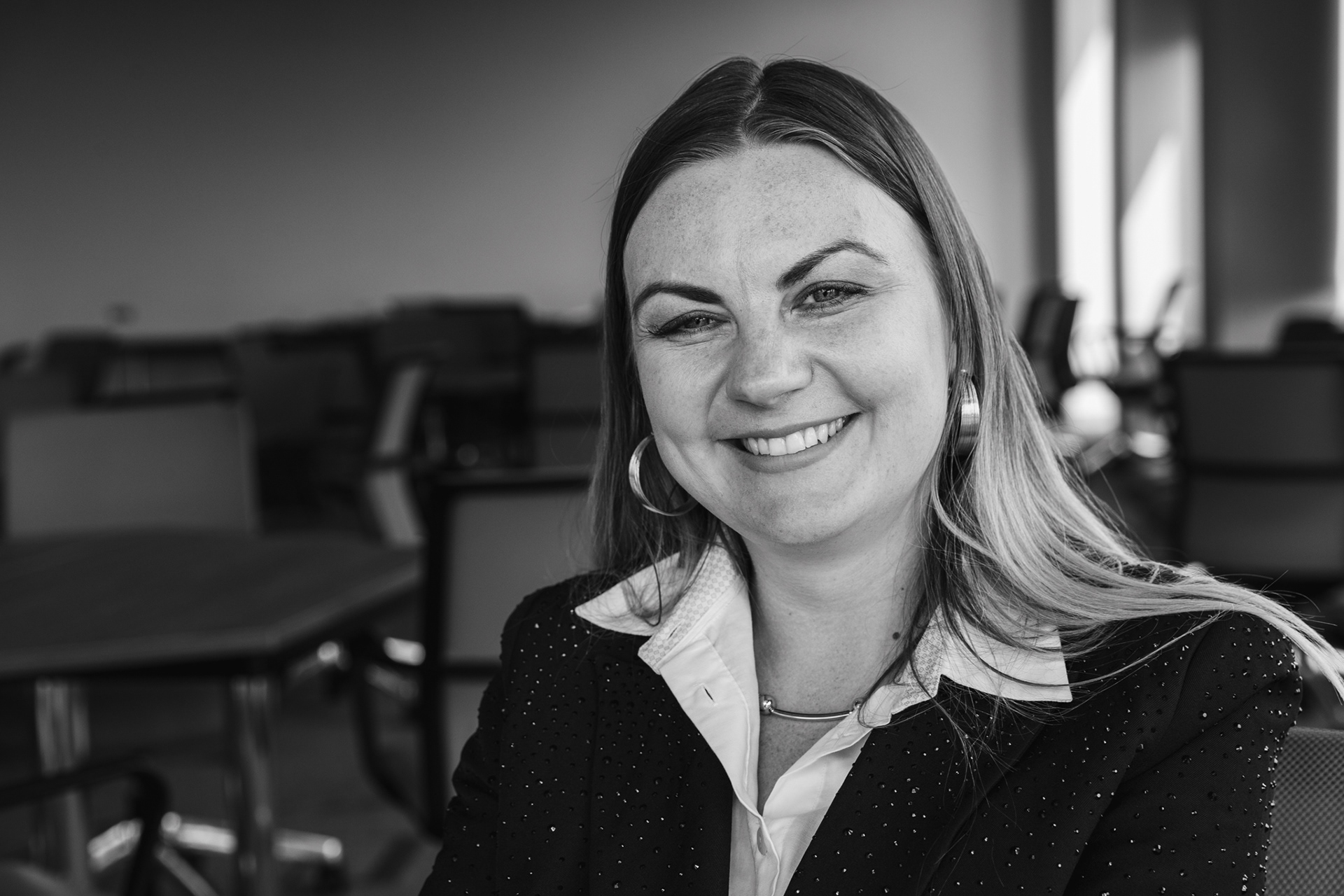
A Mission that Leads Home: Building a Bridge Between Britain and Ukraine
The most powerful driver for Nataliia is her unbreakable connection to Ukraine. This is not just nostalgia, but a purposeful activity integrated into her professional work. The business course she created is, in essence, an investment in the future of the Ukrainian economy.
"We focus on the Ukrainian economy. All the projects we select must be beneficial for Ukraine. Whether it's exporting goods, creating jobs, or the future possibility of scaling the business in Ukraine," she explains.
Her mission extends far beyond a single course. She is actively working on new grant projects to expand this impact:
A Project for Lutsk: "I am now applying for a government grant that will allow me to teach the same course as here, but at a Ukrainian university. And based on the results, we will pay for the three best teams to travel here, to London, so they can present their projects to investors."
A Collaboration of Three Universities: "We are writing another grant with Loughborough University and a Ukrainian NGO. We want to create mixed teams with participants in Britain and in Ukraine so that they can strengthen each other."
Behind all this lies a clear vision and a deep conviction.
"The more entrepreneurs we create, we nurture, the stronger our economy will be. The more taxes will be paid, the more developed the social sphere will be, the more it will be possible to support pensioners, people who have suffered from the war, and the military... This is my mission."
This is no longer just a job. It is a service, where academic knowledge and international experience become tools for rebuilding and strengthening her native country.

